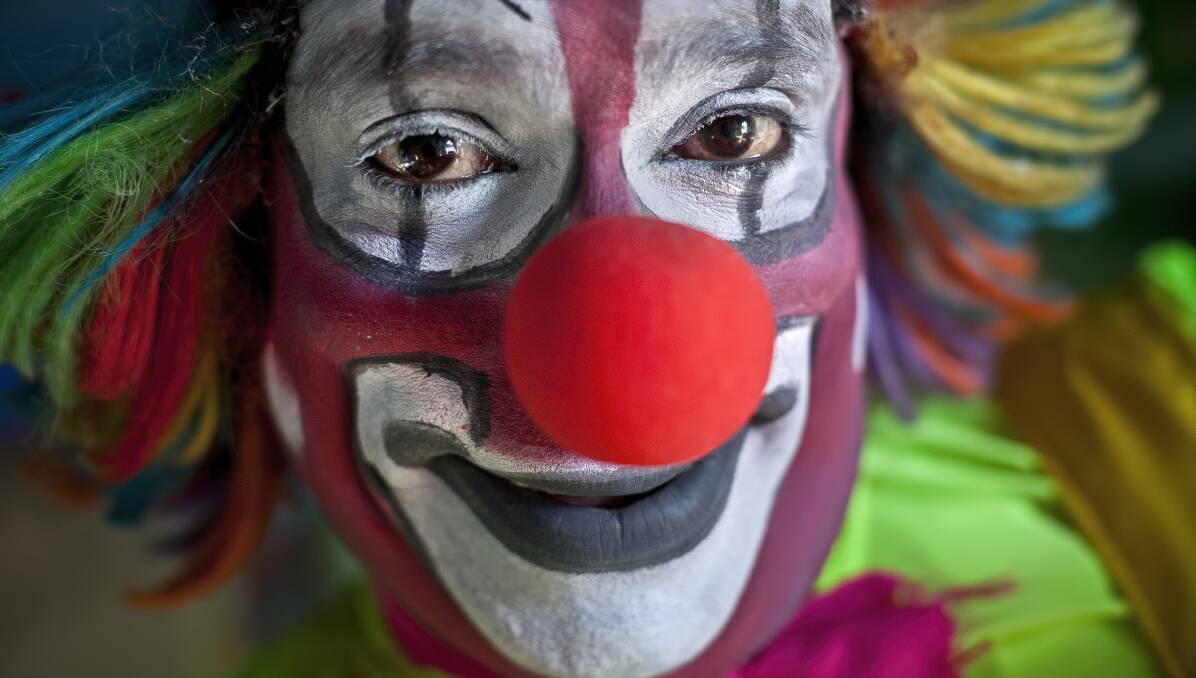
I have been surprised at the number of people who recently told me that they fear clowns.
Subscribe now for unlimited access.
$0/
(min cost $0)
or signup to continue reading
What makes clowns scary? To start with, clowns look different from ordinary humans. Unusual sights tend to put us on guard.
Clowns do not show changing facial expressions – each has one expression painted on. Some individuals find that freaky.
The faces of clowns are largely hidden, as if they were wearing a mask. We perceive individuals wearing masks as hiding their identity - possibly to protect themselves. Think of the Ku Klux Klan in their white masks. Or terrorists in balaclavas.
We have learned that clowns are unpredictable. Part of their usual act involves doing things no one else does, like squirting water from a flower.
Clowns in an unexpected situation, such entering a bank or walking in the woods, create an odd scene that could indicate danger. I would call the police if I saw a clown enter a bank.
There is the cultural concept that clowns can be evil. Stephen King wrote It about an evil clown. How many nightmares did that book prompt? John Wayne Gacy dressed as a clown in the U.S. to advance his interest in molesting and killing boys.
Negative cultural views of clowns have led to people using the term "clown" to disparage others. In the negative sense, the term refers to a coarse, ill-bred person.
Once people start talking about the terror of clowns, some "clowns" dress up as clowns and go around, hoping to get media attention. They take their lives in their hands, but they get a thrill.
But not everyone is down on clowns. Many individuals find them amusing. Some songs extol clowns: Everybody Loves a Clown and Send in the Clowns. Physician Patch Adams famously dressed up as a clown to help boost the mood of hospitalised children.
Do clowns have feelings? Sure. Their usual intention is to entertain. Their feet may not be as large as their clownish shoes, but their heart is just like everyone else's.
When Halloween comes, I will not dress up as a circus clown. Too dangerous. I will dress up as Donald Trump.

